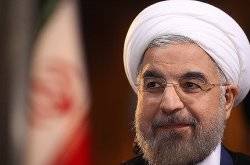Iran's new foreign minister will join talks with six countries trying to rein in the country's nuclear programme at the United Nations, the European Union's foreign policy chief Catherine Ashton has said.
Thursday's meeting on the sidelines of the UN General Assembly in New York would be the first in six years between a US secretary of state and an Iranian foreign minister. It comes amid signs of a possible thaw in US-Iranian diplomatic relations, which were cut after the 1979 Islamic Revolution.
Ashton, in the role of chief nuclear negotiator, told reporters after meeting Foreign Minister Mohammad Javad Zarif on Monday that she saw "energy and determination" for talks with the US, Russia, China, Britain, France and Germany to move forward.
The meeting on Thursday between the Western powers and Iran will be the first since April, when discussions on how to reduce fears that Tehran might use its nuclear technology for weapons stalled at a meeting in Almaty, Kazakhstan.
US officials said Secretary of State John Kerry would attend. It would mark the first meeting between the top US and Iranian diplomats since Kerry's predecessor Condoleezza Rice met former Iranian Foreign Minister Manoucher Mottaki in the Egyptian resort of Sharm el-Sheikh in May 2007.
Rouhani to address UN
The election of Iran's new president, Hassan Rouhani, considered a relative moderate in the country's hard-line clerical regime, has sparked speculation about possible movement on the nuclear issue.
Rouhani said last month that the Foreign Ministry, not the Supreme National Security Council, would lead nuclear talks with world powers, a shift away from security officials being in control.
Rouhani was scheduled to address the UN on Tuesday.
Jen Psaki, the US State Department's spokesperson, said the United States hoped the new Iranian government "will engage substantively with the international community to reach a diplomatic solution to Iran's nuclear programme and to cooperate fully" with the International Atomic Energy Agency in its investigation.
"We remain ready to work with Iran should the Rouhani administration choose to engage seriously," she said.
Ashton said she and her team would meet Zarif again in October to follow up on Thursday's meeting to continue their discussion on reviving long-stalled negotiations.
"We had a good and constructive discussion," she said of her half-hour meeting with Zarif. "We didn't talk about the details of what we would do. The purpose of this meeting was to establish how we would go forward."
The UN Security Council has imposed four rounds of sanctions against Iran because of concerns it is seeking to develop nuclear weapons and its refusal to suspend uranium enrichment. The US and its allies have imposed even more punishing sanctions which have severely affected Iran's economy and drawn criticism from its citizens.
Iran insists its nuclear programme is peaceful, aimed only at producing energy and isotopes for medical use. Rouhani told the US-based television channel NBC last week that Iran has "never pursued or sought a nuclear bomb, and we are not going to do so".
Rouhani has repeatedly appealed to the US and allies to roll back sanctions to move ahead negotiations. Before leaving for New York, Rouhani urged Western leaders to heed his appeals for greater dialogue and take steps to ease economic sanctions on Iran as a path to "reach joint interests".
PHOTO CAPTION
Iranian President Hassan Rouhani will address the United Nations General Assembly on Tuesday [Reuters]
Aljazeera


 Home
Home Discover Islam
Discover Islam Quran Recitations
Quran Recitations Lectures
Lectures
 Fatwa
Fatwa Articles
Articles Fiqh
Fiqh E-Books
E-Books Boys & Girls
Boys & Girls  Articles
Articles










